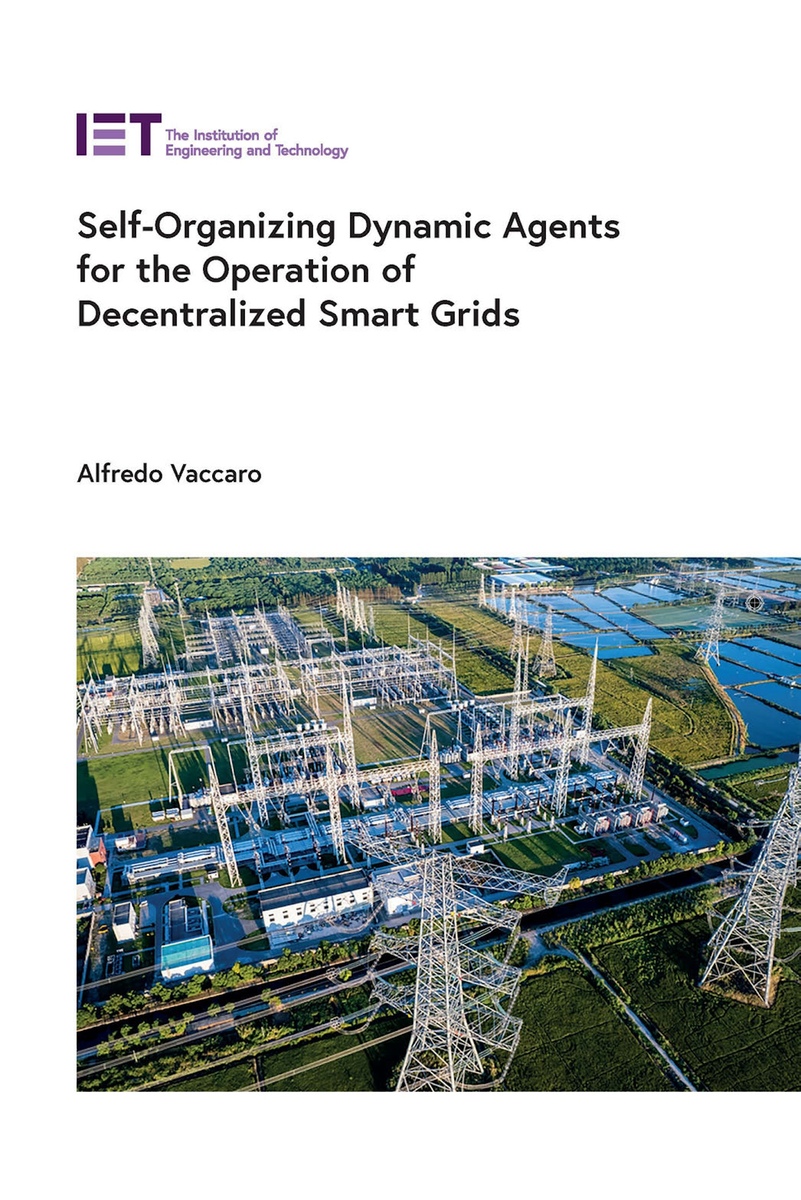Self-Organizing Dynamic Agents for the Operation of Decentralized Smart Grids
The Institution of Engineering and Technology, 2024
Cloth: 978-1-83953-687-8 | eISBN: 978-1-83953-688-5 (PDF)
See other books on: Electrical | Operation | Power Resources | Technology & Engineering | Vaccaro, Alfredo
See other titles from The Institution of Engineering and Technology
Cloth: 978-1-83953-687-8 | eISBN: 978-1-83953-688-5 (PDF)
ABOUT THIS BOOK | TOC
ABOUT THIS BOOK
Integrating intermittent distributed generation, distributed storage systems, electric vehicles, and flexible loads will present security, stability, and power quality challenges in future smart grids. The amount of data to be processed to face these issues can overwhelm grid operation tools and conventional IT-based applications, limiting situational awareness and decision support. Decentralized and self-organizing technologies can help with that problem. In a self-organizing system, information processing is based on local interactions of its elementary parts (dynamic agents), enabling the cooperative solution of complex decision-making problems by only requiring local information exchange without needing a fusion center for data collection and processing.
See other books on: Electrical | Operation | Power Resources | Technology & Engineering | Vaccaro, Alfredo
See other titles from The Institution of Engineering and Technology












